Six Days in Fallujah preview: not a shooter but a horror game
Collateral damage
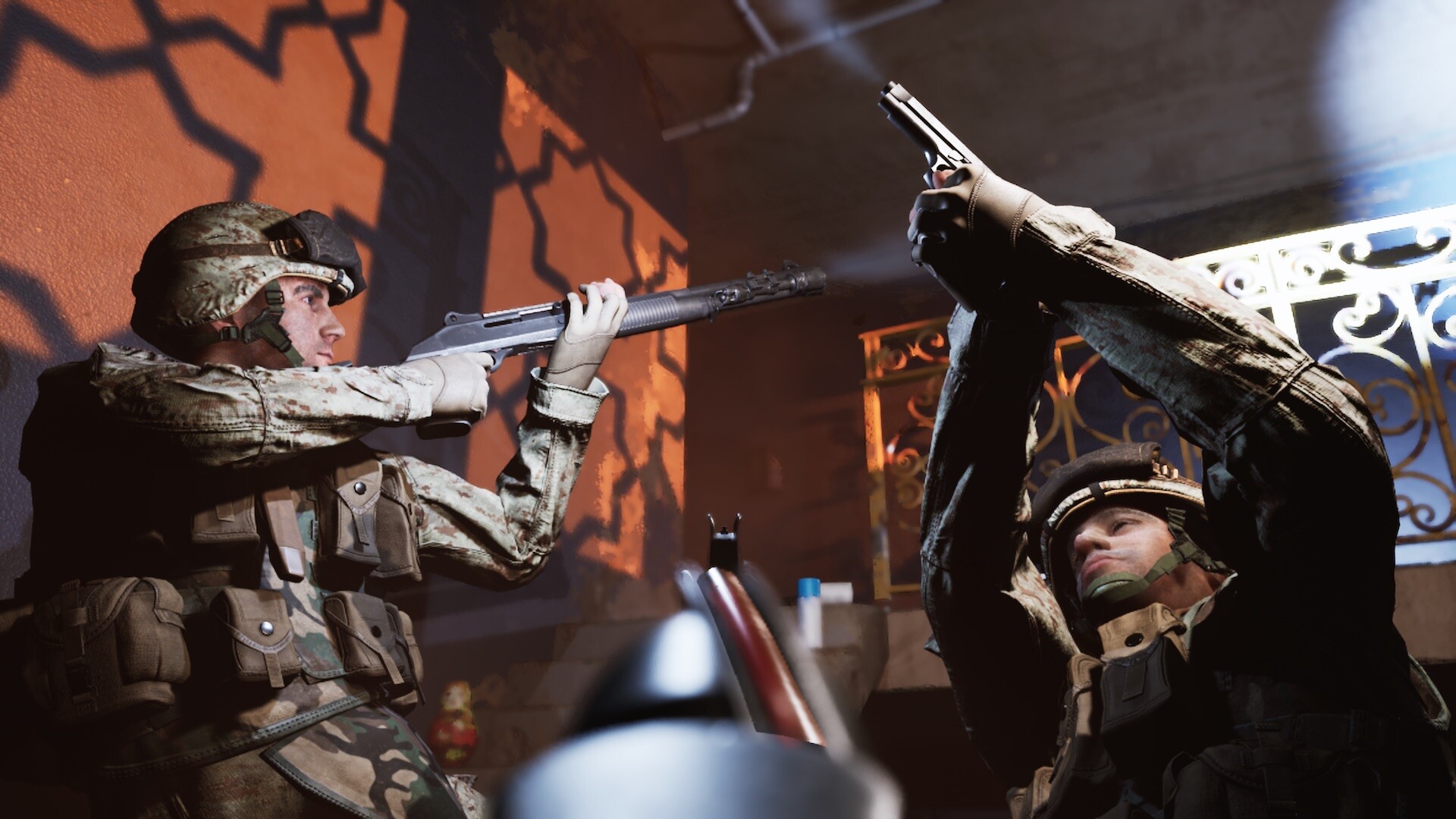
Words by Jake Tucker, Editor in Chief
We’re picking our way through one of Six Days in Fallujah's procedurally generated houses; an explosion rings out. "I'm down, I’m down.” squelches a radio. I want to turn around, but I can’t; there are two doorways in front of me that I’m positive will erupt with heavily armed enemies the second I turn around.
There’s shooting behind me. Everything is loud as hell, and it’s impossible to pick out the squawking voices of the rest of my crack team of TRG marines, let alone work out where gunfire is coming from. Moments later, the source of the gunfire becomes obvious, as an assault rifle barks from behind me, killing me instantly.
There’s silence for a second as the adrenaline flushes out of the system before staff writer Elie Gould giggles. “I guess we’re dead again.” they deadpan. 6 Days in Fallujah isn’t so much a shooter as it is a horror game. Each corner could have a potential enemy, and as you can die in a single bullet, matches are punctuated by the brighter moments where you cower next to your armoured vehicle and feel comparatively safe, and then the moments that you stagger blindly into darkened interiors, flashlights picking out furniture and an untold number of attack vectors with each step.
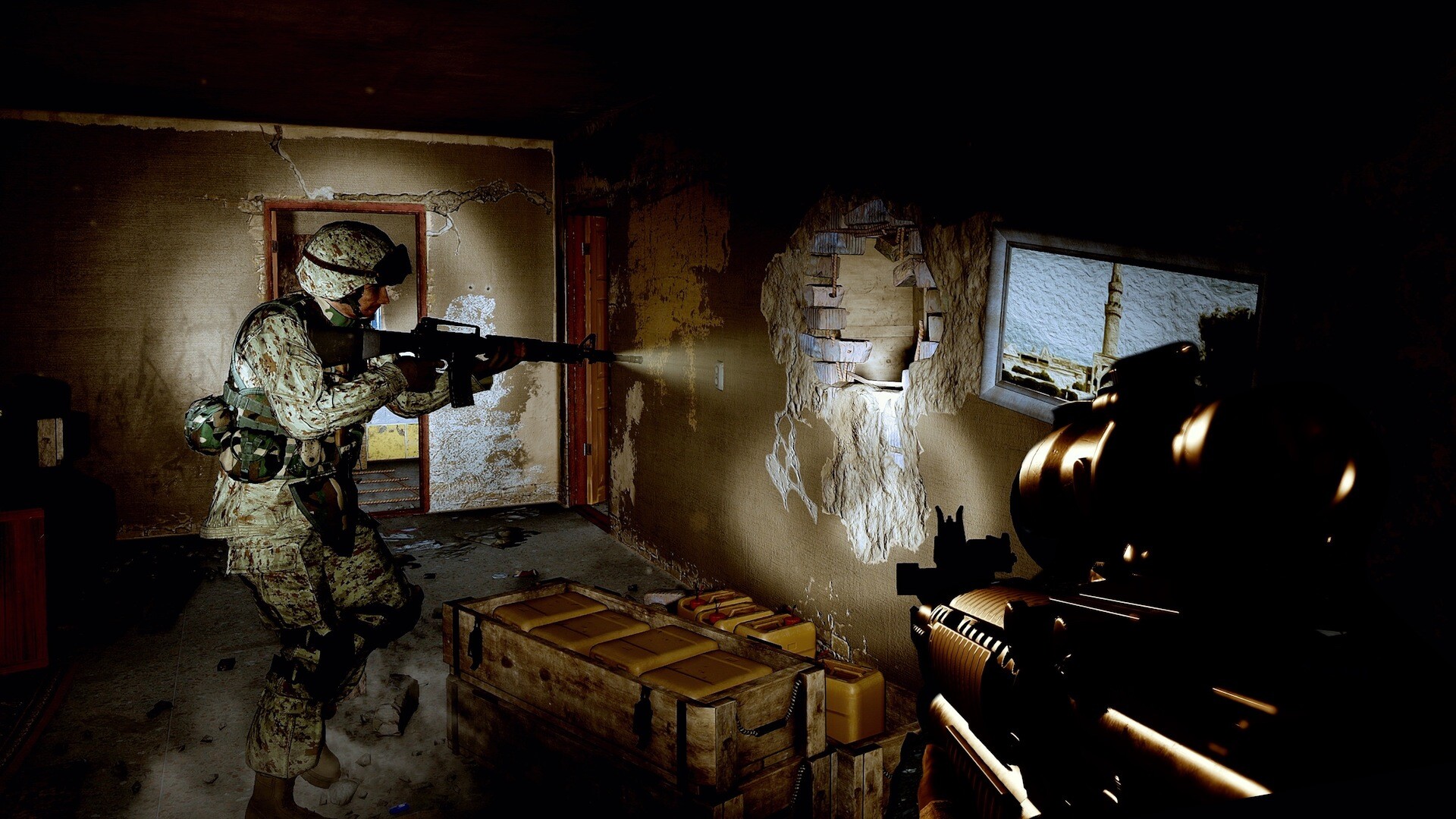
It’s intense, brutal and the sort of tactical shooter that’s best suited for a dedicated team. Sadly, the horror doesn’t end when you come out of the mission.
Everything is political. Despite the crowds of poorly informed social media users suggesting games, films, and even bands should drop the politics, nothing is made in a vacuum. Even vanilla is a flavor.
Even though I don’t live in the US and possess only a rudimentary understanding of international politics, it’s clear to me that the US invasion of Iraq is covered in difficult political grime. Wading through the bloodshed of the second battle of Fallujah certainly left me feeling like I needed to take a shower.
Sign up for breaking news, reviews, opinion, top tech deals, and more.
Fallujah in context
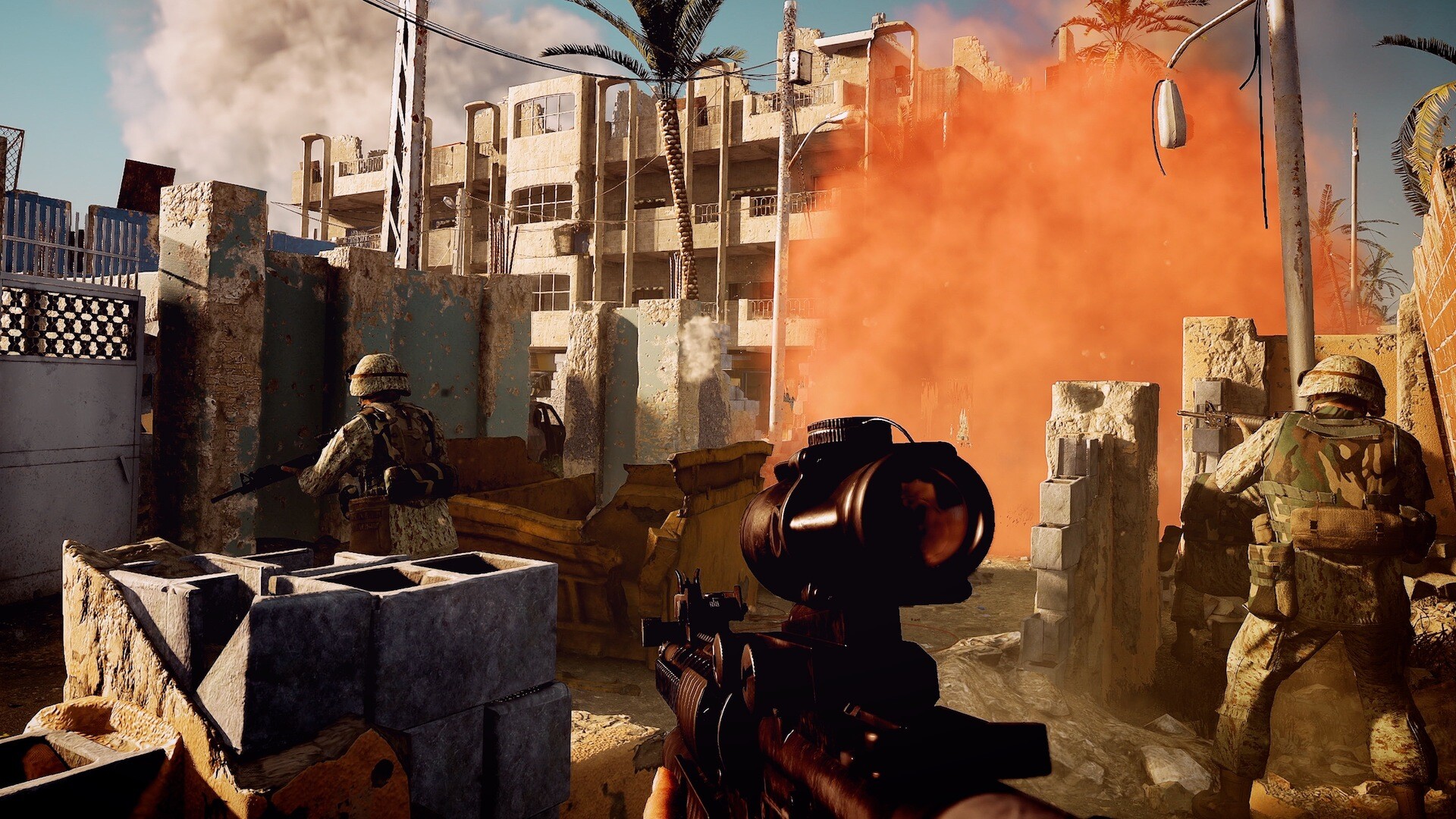
Words by Cat Bussell, Staff Writer, and ex-political analyst.
As a former political analyst with basic counter-insurgency training, it’s clear to me that Six Days in Fallujah falls short of its stated goal to accurately capture the horror and intricacies of the Iraq War. There is a bizarre sense of dissonance between the harrowing quotes from veterans that line the title’s loading screens and the triviality with which a well-organized squad of players can cut a swathe through enemy combatants with dispassionate ease.
While there’s definitely artistic merit to showcasing the banality of war, Six Days’ humanization of those caught in the conflict is disappointingly lopsided. While the American Marines are fleshed out, the locals, both bystanders, and insurgents, are given little space, reduced to deadly adversaries or didactic Al Qaeda spokespeople.
Six Days does little to address the extremely blurred lines between civilians and combatants that defined the Iraq War
In addition, Six Days does little to address the extremely blurred lines between civilians and combatants that defined the Iraq War. While many accounts of the conflict, including Six Days, paint the insurgent/civilian dichotomy as a binary contrast, the reality was not nearly as cut and dry. An enemy combatant could have been anything from a trained Al Qaeda soldier to a bystander who picked up a gun to feed their family and who had little investment in the goals of the militant group.
The Iraqis of Six Days, however, are either corpses or part of an indistinguishable militant horde, with no room for nuance. While the stories of the marines absolutely deserve to be told, the same is true for the locals, whether or not they fought against the invaders, were bystanders, or found themselves being something in-between.
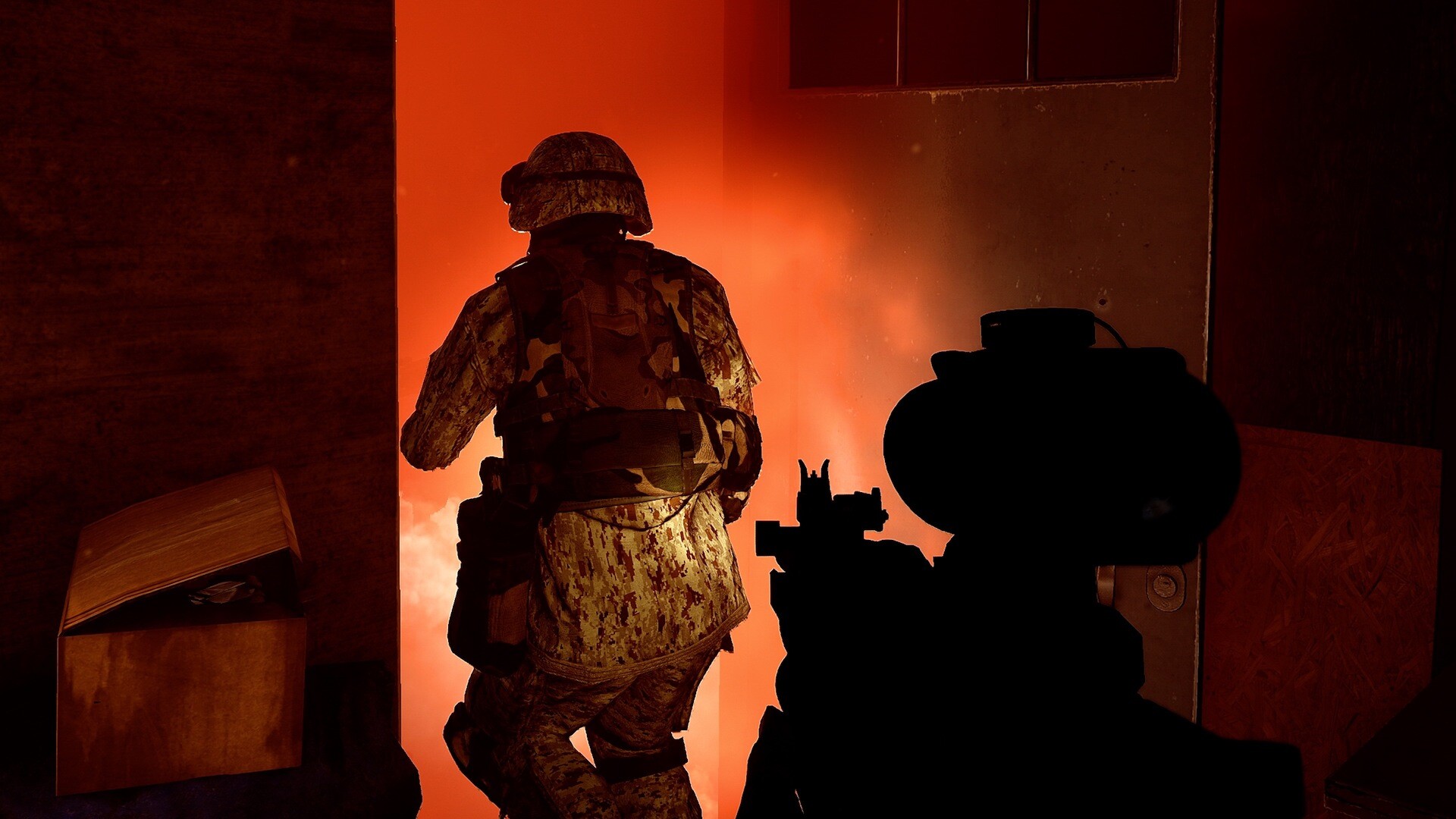
Six Days also takes significant liberties with rules of engagement: a strict set of protocols used by many armies worldwide to determine when they can and can’t treat someone as hostile. Six Days encourages you to fire on anybody you see who doesn’t look like a US Marine. This dangerous, immoral and illegal approach greatly undermines the game’s commitment to immersion and verisimilitude. In reality, Marines had to ascertain what’s known as “positive identification” of a potential enemy’s hostile intention in order to legally fire on them.
Though these rules changed throughout the war, the process by which US forces identified opposing combatants was a significant sticking point at the time; designed as they were for binary notions of combat and civilians, rather than the gray areas introduced by fighting a guerrilla force with significant connections to the civilian population. Unfortunately, this is a trap that Six Days stumbles into, and, while it does little to undermine the satisfying, if minimalist, game mechanics, it does a great deal to bring the game’s stated commitment to earnestly recapturing the horrors of the conflict into question.
Simulation agitation
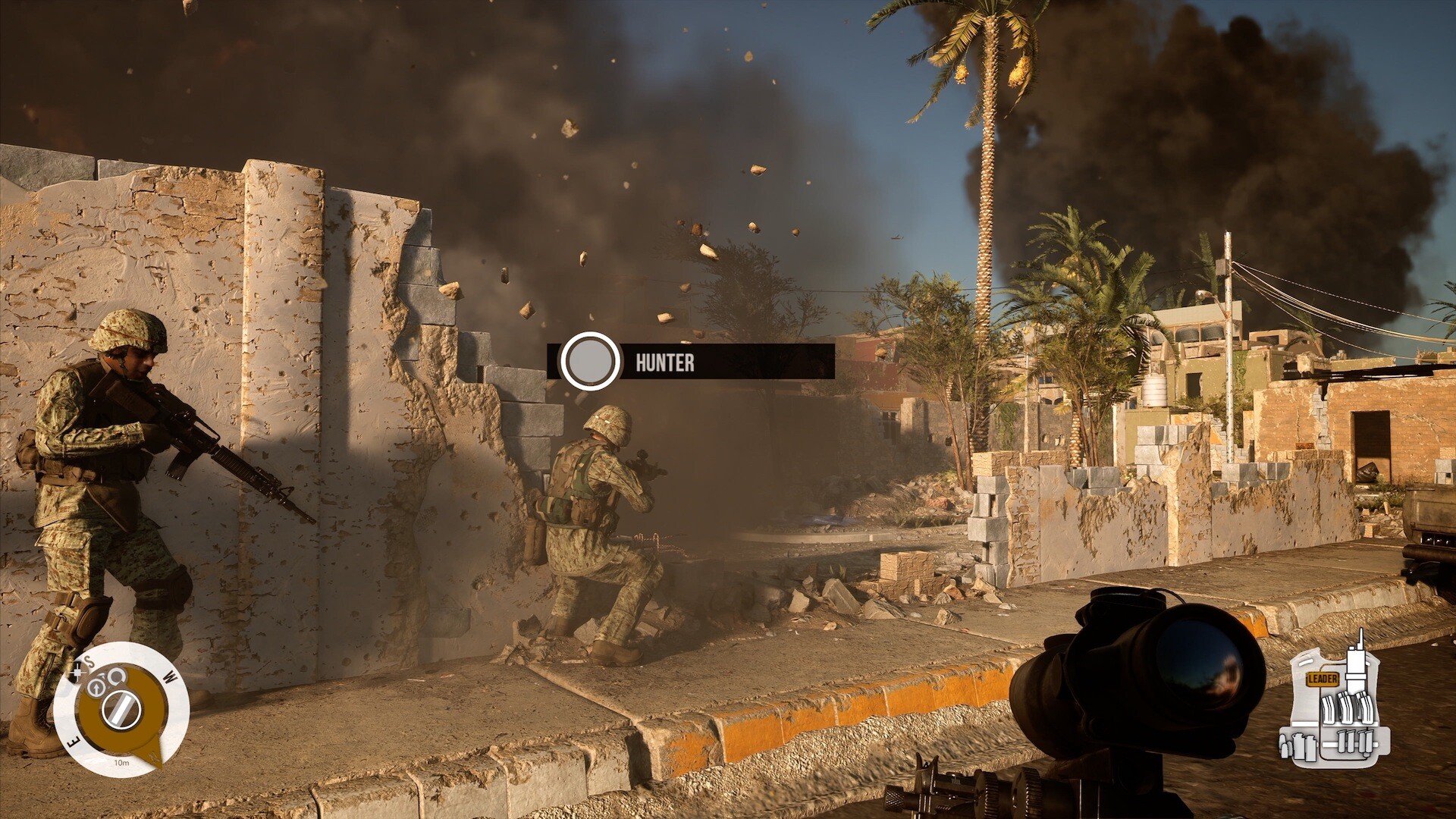
Words by Jake Tucker, Editor in Chief
Despite all of this, the team at Highwire Games has, improbably, turned the oft-delayed Six Days In Fallujah into a competent and engaging shooter, even though it often feels barebones with this Early Access release. Movement is clunky, and you feel like you really are tooling around with 55 kg of weight strapped to yourself. Movement is tricky with longer weapons like the M249 light machine gun, so you’re often at a disadvantage in the game's numerous dark interiors.
Reloading is sluggish, grenades can kill instantly, and a teeming mass of enemies move toward you the whole time. Any bullet can offer up a quick death, but running out of ammunition can offer end by attrition instead, as you slowly run low on resources while enemies advance inexorably toward you.
Finishing missions with all of that baggage is difficult, and there’s a sense of real achievement when you manage to secure a building until the end of a mission, and you amble outside, knee-deep in bodies as you walk towards sunshine like it’s some sort of unerringly bleak, military-themed Hotline Miami. We only managed this success once, and it was elating, before all TRG staff present decided it was time to do something else.
It's like some sort of unerringly bleak, military-themed Hotline Miami
Still, despite that elation, I don’t think I can take enjoyment in the game the same way I do titles like ARMA 3 and Insurgency. Those games present a fictionalized setting for real combat, leaning on real-world counterparts while introducing enough deniability and emotional distance that you can fight rebels without the gnawing feeling of unease.
On the flip side, the second battle of Fallujah really happened. The people that were there - fighting on either side of the war or perhaps even having survived the carnage as a bystander - could feasibly find themselves playing the game.
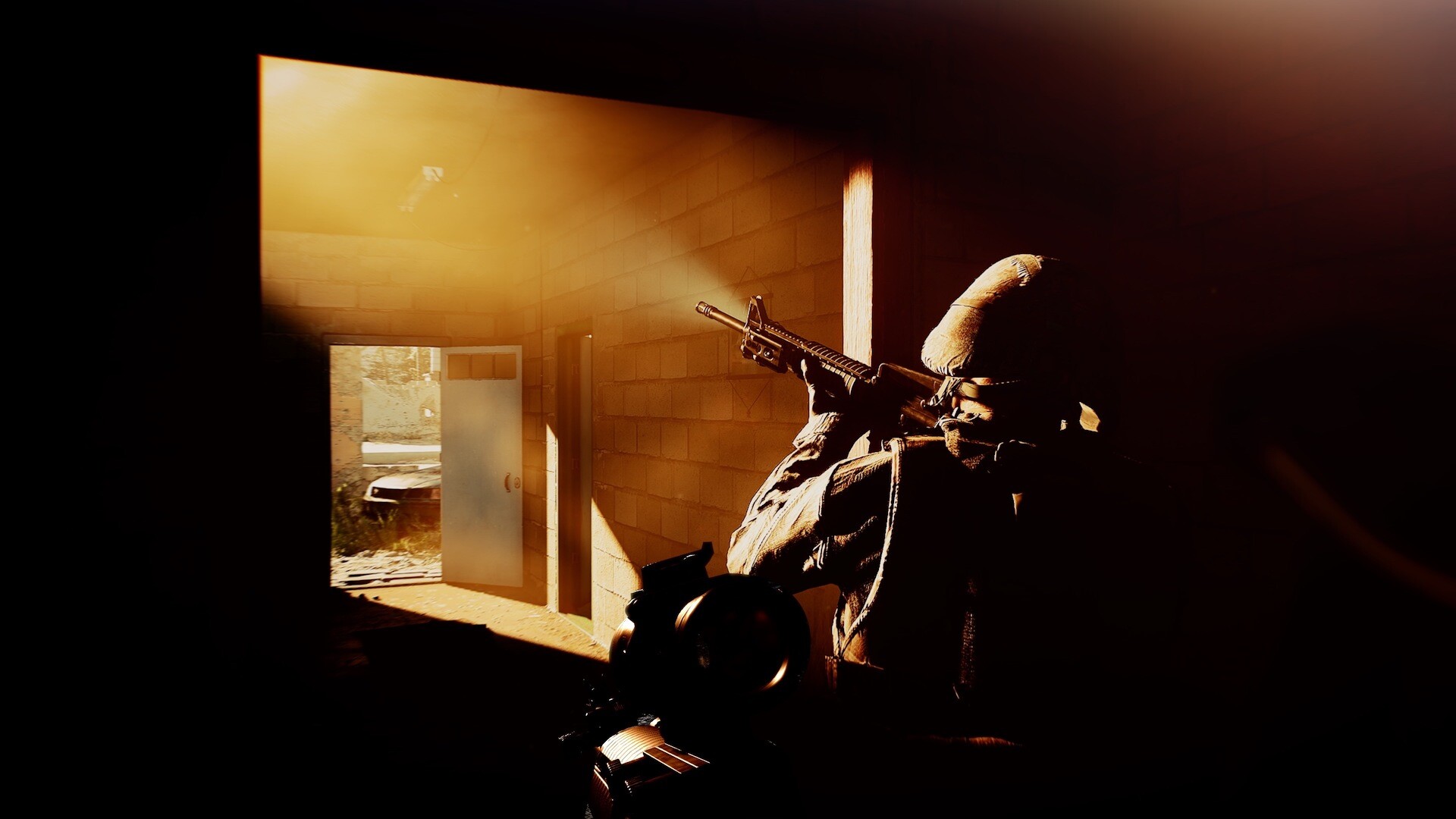
I’m not sure how to feel about this, and that growing unease in the pit of my stomach makes it hard to recommend over games with fictionalized settings. While people trying to be smart will now point at titles like Medal of Honor or Call of Duty and their use of World War 2, I’d say that my experiences with Six Days in Fallujah have left me feeling more unsettled about those games, too.
I’m not against virtual violence - I’ve made an entire career out of writing about it, and I have done unspeakably cruel things in Escape From Tarkov that are between me, my priest, and my squadmates. But, it’s all virtual, and bringing it into a real-world battle has shaken me somewhat.
It would be a better experience if the developer allowed the game to speak for itself
Highwire Games claim that its intention is to work with the Marines that were there to tell their stories, but actually, it would be a better experience if the developer allowed the game to speak for itself.
The very act of playing a shooter full of randomly generated levels that feature a stream of insurgents attacking you risks turning the game into a horde shooter and creating a situation where the violence feels disquietingly divorced from consequence. Real people died here, and I’m not sure if the best way to honor those memories is with a shooter full of infinitely respawning enemies.
If you're looking for gaming experiences that won't leave a nasty aftertaste, have a look at our list of the best co-op games out there. We've also got a list of the best FPS titles, too if you want to add firearms to the mix.

Jake Tucker is the editor in chief of TechRadar Gaming and has worked at sites like NME, MCV, Trusted Reviews and many more. He collects vinyl, likes first-person shooters and turn-based tactics titles, but hates writing bios. Jake currently lives in London, and is bouncing around the city trying to eat at all of the nice restaurants.